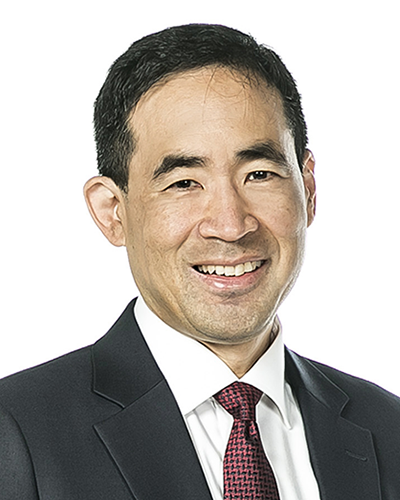Growing Old Healthily
 |
Prof. Bertram SHI, Electronic and Computer Engineering, is Director of HKUST’s Center for Aging Science, which seeks to address the global challenges of aging by harnessing the multidisciplinary expertise of HKUST faculty drawn from across the University. He is an established scholar in the areas of neuromorphic engineering, computational neuroscience, and human-machine & human-robot interfaces. He is also Special Advisor to the Vice-President for Research and Development.
|
Hong Kongers are in a privileged position when it comes to aging. Since 2013, the city has ranked the world’s No.1 for life expectancy at birth – 88 years for women and 83 for men. Hong Kong’s rising prosperity has reduced diseases of poverty (e.g. infectious diseases). It has also suppressed diseases of affluence (e.g. cardiovascular diseases and cancer), in part due to the city’s smoking rate, which is one of the world’s lowest.
There are many obvious benefits of longer lifespans, especially if accompanied by increasing “healthspans”, the time a person is in good health. For example, the elderly have a wealth of experience. When passed on to the younger generation, research has shown this benefits both generations.
However, longer lifespans also lead to shifts in a population’s composition. The latest projections by the HKSAR Government’s Census and Statistics Department, released in August, predict that people aged 65 and older will likely double in the next 25 years, rising from 20.5% in 2021 to 36% in 2046. The median age will increase from 47.3 years in 2021 to 55.5 years in 2046. This shift will bring multiple challenges.
At HKUST’s Center for Aging Science, we are seeking to address these challenges by harnessing the multidisciplinary expertise spread across the University’s Schools of Engineering, Humanities and Social Science, Science, Business and Management, and Academy of Interdisciplinary Studies. To do so, the Center has set out a three-pronged framework comprising: adaptation (improving well-being for those in need today), mitigation (improving the current and future condition of the elderly), and resilience (ensuring the youngest in society age well and can maximize their social and economic potential).
The challenge that first comes to mind may be understanding the biology underpinning many diseases of aging, such as Alzheimer’s disease (AD), one of the leading causes of dementia. In 2017, about 100,000 Hong Kong people suffered from dementia, with prevalence rising from 5%-8% among people over 65 to 20%-30% among those over 80. AD accounts for 65% of dementia cases.
Research at the Center takes a multiomic approach to AD and dementia, including studies related to genomics (DNA), transcriptomics (RNA), proteomics (proteins), and metabolomics (small molecules) within cells. Elucidating the mechanisms and understanding the hidden associations between these omics variables will lead to better understanding and potentially to improved screening and treatment, for example, via explainable AI techniques being developed by the Center. Other projects seek to understand the effect of reactive oxygen species that cause tissue damage associated with aging, the interaction of aging and high intraocular pressure on the progression of glaucoma, which is one of the leading causes of blindness, and to develop a multiomic platform for cancer drug discovery.
At a broader level, another key quest is to understand the impact of aging on society. For example, Hong Kong’s Secretary for Labor and Welfare, Dr. Law Chi-Kwong, has predicted that the city’s demand for domestic helpers will grow from its current population of 360,000 to 600,000 in 30 years due to the aging population. However, studies have suggested that many domestic helpers have limited knowledge of elderly care, and that those with training are often not placed in households with elderly members. Researchers at our Center are therefore investigating how recruitment and training can be enhanced to better match skills and job demands. Other studies are collecting data to look into the effects of aging at both inter- and intra-generational levels, as well as comparative impacts of aging on different ethnic communities in Hong Kong.
In addition, to make “aging in place” more feasible, changes to Hong Kong’s physical and social environment would be beneficial. Studies have projected that the city will face a shortage of more than 60,000 residences for the elderly by 2032. To help to address this situation, Center researchers are studying how the built environment can be enhanced. Examples include the development of smart environments to sense and assess the state of the elderly, as well as new filtration units exploiting task-specific antimicrobial ionic liquids to capture and disinfect infectious droplets and aerosols from the air.
Further Center studies seek to develop positive community interventions, for example, writing programs and initiatives to promote well-being, practices to improve language learning, and virtual reality systems to expand life-space mobility. All of these may slow the progression of cognitive impairment.
In media articles, local health specialists have pointed out that an aging population means an increased burden on the healthcare system. Additionally, the World Health Organization has identified improving motivation as a worthy investment toward the effective provisioning of primary healthcare and in strengthening the health workforce. Other overseas studies have indicated that doctors and nurses feel that time spent on documentation wastes most of their time. Now, a research team at the Center is collaborating with a local company and a local hospital to develop humanoid robotic systems to assist nurses with patient interviews to automate the process of documentation so that they can spend more time directly working with patients.
In summary, through its wide-ranging efforts, HKUST’s Center for Aging Science is seeking to develop and foster a better understanding of healthy aging. We are dedicated to enhancing quality of life for the aging population in Hong Kong and beyond through our innovative research and by engaging with leading local elderly care facilities.
By Prof. Bertram Shi

